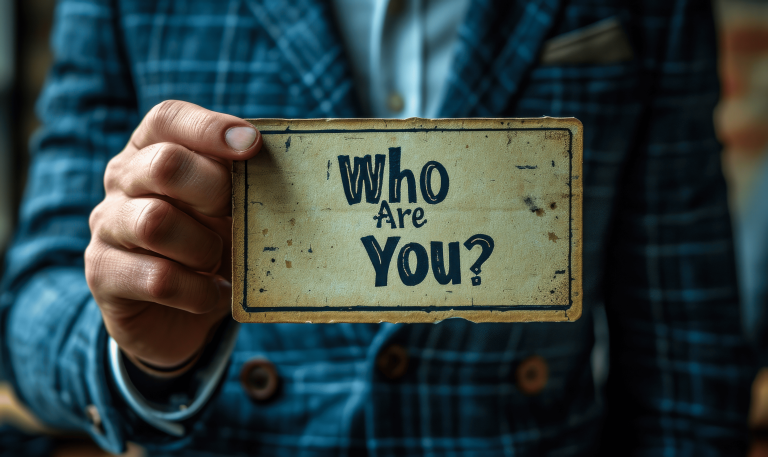
In the fast-paced world we live in, it’s easy to get caught up in the hustle of life. We chase goals, deadlines, and external achievements, but often forget to pause and look inward. But what if the key to true success — both personal and professional — lies not in what we do but in who we are?
That’s where self-awareness comes in. Self-awareness is the cornerstone of personal development, emotional intelligence, and effective decision-making. But what exactly does it mean to be self-aware, and why is it so crucial for living a fulfilling life? Let’s explore.
What is Self-Awareness?
Self-awareness is the ability to see and understand yourself clearly. It means knowing your values, beliefs, thoughts, strengths, and weaknesses — and, equally important, recognizing how others perceive you.
There are two key aspects of self-awareness:
- Internal Self-Awareness: This is your ability to understand your thoughts, feelings, and motivations. It includes recognizing your strengths, weaknesses, values, and what drives you. Essentially, it’s about understanding who you are at your core.
- External Self-Awareness: This refers to how well you understand how others perceive you. It’s not just about how you see yourself but how others experience you — and whether that aligns with your intentions.
When these two elements are in harmony, you are fully self-aware, which leads to more effective communication, healthier relationships, and a clearer path to achieving your goals.
The Importance of Self-Awareness
You may wonder why self-awareness is such a critical trait for success. The answer lies in how it shapes our decision-making, relationships, and emotional intelligence.
Here’s why self-awareness is a game-changer:
1. It Helps You Make Better Decisions
Self-awareness provides clarity. When you understand your values, motivations, and goals, you’re able to make decisions that align with your true self. Whether it’s choosing the right career path, forming relationships, or managing your time, being self-aware helps you avoid impulsive choices that don’t serve your greater good.
2. It Enhances Emotional Intelligence
Self-awareness is one of the key pillars of emotional intelligence (EQ). It allows you to understand your emotions, recognize when they’re impacting your behavior, and regulate them more effectively. A high EQ leads to better communication, conflict resolution, and the ability to empathize with others.
3. It Strengthens Relationships
When you’re self-aware, you’re more likely to be in tune with how your actions affect those around you. This awareness fosters empathy, compassion, and healthier communication, which strengthens both personal and professional relationships.
4. It Boosts Your Confidence
Knowing your strengths and weaknesses helps you build a more realistic, grounded sense of confidence. Rather than relying on external validation, you become your own source of strength. With self-awareness, you’re less likely to be swayed by others’ opinions and can instead trust your own judgment.
5. It Encourages Continuous Growth
Self-awareness isn’t a one-time achievement — it’s an ongoing process. When you become aware of your weaknesses, you can take active steps to work on them. Similarly, recognizing your strengths allows you to continue developing and leveraging them. Personal growth becomes a natural part of your life when you’re in tune with who you are and who you want to become.
Signs That You Might Lack Self-Awareness
It’s easy to think that we already know ourselves well, but many of us are operating on autopilot, unaware of how our behavior affects our success and happiness. Lack of self-awareness can manifest in several ways:
- Judging yourself or others harshly: When we lack self-awareness, we tend to be overly critical of ourselves and others.
- Difficulty accepting feedback: Self-aware individuals are open to constructive criticism, while those lacking self-awareness often become defensive or dismissive of feedback.
- Impulsive behaviors or emotional outbursts: Lack of emotional regulation and awareness can lead to hasty decisions or sudden reactions.
- Victim mentality: If you find yourself blaming others for your problems, it might be a sign that you’re not fully aware of your own role in your circumstances.
- Low or inflated self-esteem: If your self-esteem fluctuates drastically, it could indicate a lack of awareness of your true strengths and weaknesses.
These behaviors can hold you back from reaching your full potential — personally and professionally. The good news is that self-awareness can be developed, no matter where you are in your journey.
How to Increase Your Self-Awareness
So, how can you become more self-aware? There are several practical steps you can take to deepen your understanding of yourself:
1. Spend Time Alone
In today’s world, we are constantly distracted by technology, work, and social obligations. To cultivate self-awareness, make time for solitude. Reflect on your thoughts, feelings, and actions. How do they align with your values and goals? What are your reactions in different situations? Journaling during this time can help you clarify your thoughts.
2. Seek Honest Feedback
Sometimes, it’s hard to see ourselves clearly. Asking for feedback from trusted friends, family members, or colleagues can provide valuable insights into how others perceive you. Be open to constructive criticism and use it as an opportunity to grow.
3. Take Personality and Psychometric Tests
Personality assessments like the Myers-Briggs Type Indicator (MBTI) or the Energy Leadership Index (ELI) can provide a structured way to understand your strengths, weaknesses, and emotional patterns. As a Certified ELI Master Practitioner, I can guide you through the ELI assessment, which helps you understand your current energy levels and how you react under stress. This assessment is particularly useful for identifying areas where you can shift your mindset and to consciously choose response to the situations.
4. Practice Mindfulness
Mindfulness helps you observe your thoughts and emotions without judgment. Regular mindfulness practice — whether through meditation or simply paying attention to your thoughts throughout the day — can help you become more aware of your mental and emotional states.
5. Work with a Coach
One of the most effective ways to increase self-awareness is by working with a coach. As a self-improvement coach, I help clients dig deeper into their thought processes, values, and goals, asking empowering questions that lead to greater clarity and personal growth. Coaching provides the structure, support, and accountability needed to stay on track.
The Lifelong Journey of Self-Discovery
Self-awareness is not a destination; it’s a journey. As you grow and evolve, so will your understanding of yourself. You’ll face challenges, learn from mistakes, and continuously refine who you are. The more committed you are to this journey, the more empowered you’ll become to live a life that aligns with your true values and aspirations.
Remember, you are the most interesting subject you’ll ever study. Your thoughts, emotions, and experiences hold the key to unlocking your true potential.
Start Your Self-Awareness Journey Today
If you’re ready to unlock your full potential and start living a more fulfilling life, self-awareness is the first step. As a Certified Coach, I am here to support you on this transformative journey. Whether through one-on-one coaching, powerful assessments, or actionable strategies, we’ll work together to help you become the best version of yourself.
Contact me today to schedule a free session and take the first step toward greater self-awareness and success!
“As you start to walk the way, the way appears.” — Rumi

